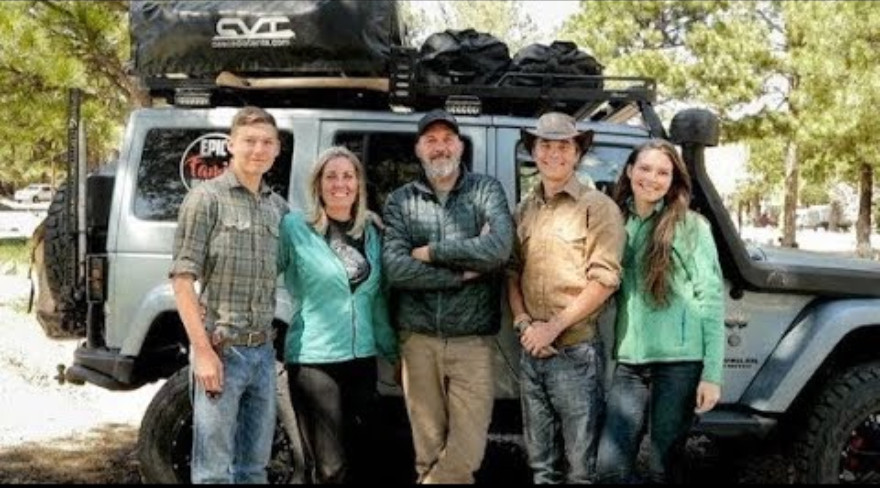
Family road trips carry a magic that airplanes never quite capture. You’ve got the long stretches of highway, the unplanned stops, the backseat chatter, and the chance to see the country roll by at your own pace. But the cost of gas, food, lodging, and unexpected detours can make the idea feel overwhelming when you’re watching every dollar. The good news is that with the right strategy, families can carve out an unforgettable journey without draining savings. Budget-conscious travel doesn’t mean cutting corners on fun; it means choosing carefully, planning smartly, and keeping rhythm in the journey.
Fuel Choices That Stretch the Budget
Start with the gas tank because it’s the budget line that sneaks up on families most. Instead of guessing at the next exit, parents can lean on monitoring gas stations with an app to spot cheaper fuel before the dashboard light even blinks. Those tiny differences of fifty cents here and a dollar there may sound trivial, but across hundreds of miles the savings become real. The trick is to treat fuel as a decision, not a scramble. You plan your snacks; you should plan your fill-ups too. That shift in mindset makes a road trip financially lighter without losing any spontaneity.
Pack Light, Pack Smart
Organization turns into currency once the car gets packed. By mid-trip, parents who invested in compression cubes that trim suitcase bulk are usually the ones breathing easier. Each cube creates order, saves time, and keeps kids from dumping out bags to find a missing shirt. Less chaos means fewer emergency purchases at rest stops where prices are inflated. It also keeps the car atmosphere calmer—something money alone can’t buy. Packing is rarely glamorous, but it’s the unseen gear that stretches your budget.
Plan Before You Roll
All of this, of course, works better with a framework. Before the car even leaves the driveway, families who explore this further using budget templates know exactly how fuel, food, and fun stack up. Having categories mapped out removes the fog of guessing. You can shift dollars around without losing sight of the whole picture. It’s not about restricting joy; it’s about shaping it so the trip never feels like a financial gamble. Planning gives you a compass for the road ahead.
Mix Learning Into the Journey
Every trip has stretches that drag, so why not make them useful? Parents can slip in hikes, landmarks, or museums that kids remember long after the car ride ends. Sites that help you map hikes that spark curiosity show how simple it is to blend learning with leisure. Children who run along a trail and see geology explained on a sign absorb more than they would in a classroom. The cost is minimal, the memory is permanent, and the family comes away richer without spending more. Education isn’t an add-on here; it’s woven into the trip itself.
Sleep Decisions That Save
Lodging often determines whether a budget holds or buckles. Families automatically think “hotel,” but a closer look at the RV versus hotel cost breakdown changes the calculation. In many cases, combining your wheels with your bed trims costs and offers new flexibility. Cooking breakfast in your own space instead of eating out three times a day can save hundreds. The freedom to park near a trailhead or beach transforms accommodation into part of the adventure. Sleep, meals, and transportation blend into one line item instead of three.
Build in Joyful Detours
A stretch of endless highway drains energy fast. That’s why families thrive when they detour toward laughter—maybe a neon dinosaur, maybe the “world’s largest” oddity in a small town. Even the most frugal road trip benefits from quirky stops that spark giggles tucked into the itinerary. Kids light up, parents laugh along, and the drive feels less like endurance and more like play. These breaks rarely dent the budget but permanently elevate the memory. A silly roadside statue may end up as the most retold part of the whole vacation.
Keep Expenses Visible
Budget trouble often comes not from one big purchase but from a dozen small ones you forgot to track. Ending each day by checking apps that track expenses on the go gives parents a clear look at what’s left for tomorrow. Kids can even join the process, helping them understand trade-offs—snacks today versus activities tomorrow. The exercise creates accountability without dampening fun. With the numbers visible, guilt doesn’t pile up afterward, and the return home feels lighter. It’s not just money management; it’s stress management.
Budget-conscious road trips aren’t a punishment. They’re a reframing—choosing where money matters most and cutting where it doesn’t. Families who plan gas stops, pack with intention, build in education, consider alternative lodging, laugh at the odd detours, and watch their spending in real time find themselves with richer experiences, not fewer. The rhythm of the journey becomes less about scarcity and more about creativity. The constraints fuel better choices, sharper memories, and a smoother ride. In the end, the story is never how little was spent—it’s how much living fit into those miles.
Rev up your faith and passion for cars by visiting The Christian Car Guy Radio Show for inspiring podcasts, car shows, and a unique blend of automotive and spiritual insights!



